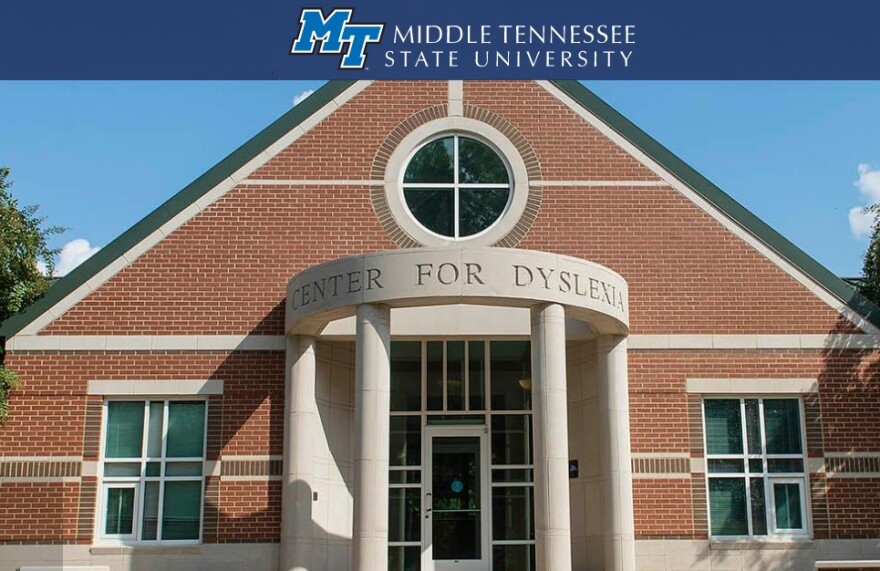MURFREESBORO, Tenn. (Will Chappell) -- Following the passage of the 2016 Say Dyslexia Bill in Tennessee formalizing educational support for dyslexic students, many parents have sought dyslexia diagnoses for their struggling children.
Dr. Timothy Odegard, a psychology professor at Middle Tennessee State University, has published a new study which shows that Tennessee schools continue to struggle identifying and helping children with learning disabilities. Odegard heads the MTSU Tennessee Center for the Study and Treatment of Dyslexia.
The new study, published by Odegard and his colleagues in the journal Annals of Dyslexia, looked at the cases of seventy-one students from around Tennessee in the last five years. The students in the study were brought to MTSU by their parents for supplemental testing for reading disorders.
“What we identified was, in those limited clinical referral cases, the schools were not properly identifying kids…for being struggling readers,” Odegard told MTSU On the Record, heard on WMOT each week.
The study found that 90% of the students tested were below grade-level in reading comprehension. This included 69% of the children they tested who were not receiving supplemental reading help in school.
Additionally, the researchers looked for signs of dyslexia among the children in the study. They found that 75% of students not receiving extra instruction showed signs of dyslexia, while the number was even higher among those receiving intervention.
Odegard said that these findings do not necessarily mean a child has dyslexia, only that they struggle with specific parts of literacy that dyslexic children also struggle with. However, “in our sample we found pretty pervasive deficits in our children across the board,” he said.
The study showed that Tennessee continues to lag both in identifying children with learning disabilities and helping them. The state has perennially struggled with childhood literacy, with two thirds of third graders routinely reading below grade-level.
Odegard said that the first step to better helping dyslexic kids in Tennessee is improving reading education in the state as a whole. “When all the kids in a school, or the majority, are struggling to read words and spell them…it makes it very difficult to find those who have that brain basis that might predispose them to struggling.”





